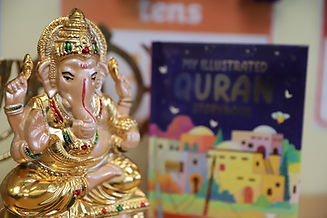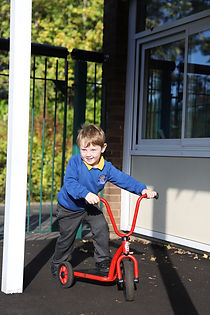
RE

Religious Education (RE) portrays an important role in defining the St Alban’s C of E Academy distinctive Christian character. The SIAMS schedule 2018 (Strand 7) makes it clear that RE should reflect the school’s Christian vision. RE is deemed a core subject within our school curriculum and it has a vital role in developing religious literacy and deepening pupils' understanding of Christianity, in all its forms, and fostering appreciation and understanding of other faith traditions. RE is non-confessional and treated as an academic subject in its own right.

Religious Education at St Alban's
At St Alban’s, we ensure RE provides a more coherent, progressive and challenging approach to the teaching of Christianity within the context of the wider exploration of the diversity of religion and belief in the modern world. We ensure RE allows pupils to explore ways of extending their ability to think theologically and engage in theological enquiry as part of their learning in RE by building on a spiral curriculum. Our RE teaching at St Alban’s is in line with the recommendations of the Statement of Entitlement for Church Schools, published by the Church of England Education Office (June 2016). Christianity is, therefore, no less than two thirds of RE curriculum time. The teaching of Christianity is core to the teaching of RE in our Church of England school. However, as a Church school we also have a duty to foster an accurate and increasing understanding of world religions and worldviews. As a result, we aim to ensure our children gain greater insight into the world in which they are growing up. They learn to appreciate the varying faiths of others and develop a deeper understanding of their own ideas and beliefs. These outcomes must contribute to harmonious relationships within and between communities, promoting social inclusion and combating prejudice and discrimination.
Religious Education contributes to children’s spiritual, moral, cultural, intellectual, social and physical development by helping them to understand what religions teach, what it means to be a religious believer, and to be aware of experiences, which raise issues about the meaning of life. Religious Education in our school also helps children to learn not only about their own religion and about other people's, but also to learn from religions, skills of:
-
Consideration
-
Tolerance
-
Empathy
-
Respect
-
Forgiveness
-
Friendship
We enable children to develop a sound knowledge not only of Christianity but also of other world religions such as Judaism, Islam, Hinduism, Buddhism and Sikhism and especially those that are the main faiths of children within our school enabling children to express their personal ideas and insights.

Children are also afforded the opportunity to deepen their understanding of the religion and worldviews as lived by believers through exploring the text and context, relating the actions of the believer to their beliefs and discovering how it apply to the lives of other individuals from different faiths


